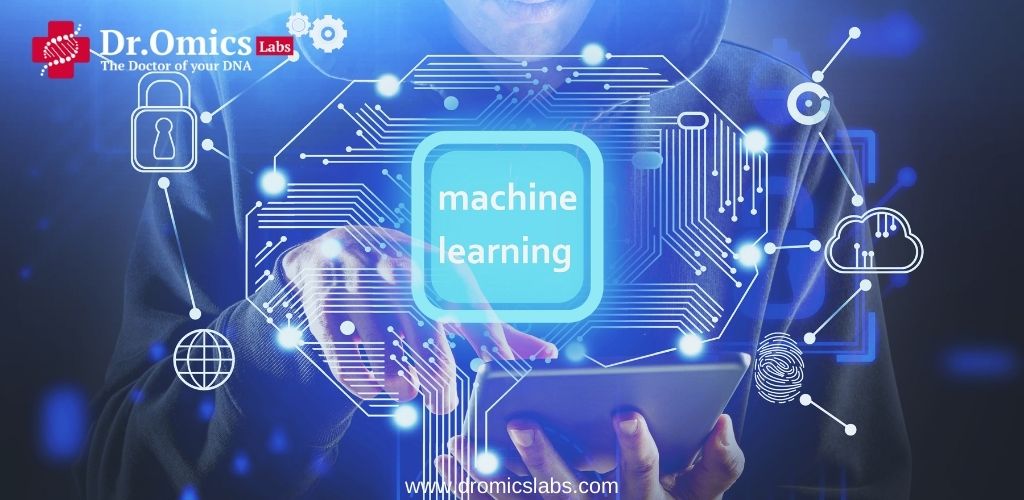In the past decade, genomics has evolved from a niche area of biology into one of the most data-intensive fields in science. The sequencing of entire genomes, once an expensive, laborious feat, is now routine. As the cost of sequencing plummets and the volume of genomic data surges, researchers face a new challenge: how to extract meaningful insights from this information overload. Enter artificial intelligence and high-performance computing—the dynamic duo driving the latest genomics research into a new era of precision, efficiency, and real-world impact.
The AI Advantage in Genomics
Artificial intelligence (AI), especially machine learning (ML) and deep learning (DL), has become indispensable in the analysis of genomic data. Traditional statistical methods struggle to detect the nuanced patterns in massive datasets comprising gene expression levels, DNA variants, and epigenetics research. In contrast, AI models thrive in such complexity.
These models are now being trained on diverse genomic datasets to predict disease risks, identify potential drug targets, and enable tailored treatment plans. For example, DL algorithms can parse genomic sequences to predict cancer susceptibility or metabolic disorders with unprecedented accuracy. Beyond diagnostics, AI’s real power lies in its ability to model how genetic variations interact with environmental exposures, age, or lifestyle to influence health outcomes (1).
Speed, Scale, and Security: The Big Data Backbone
One major bottleneck in genomic science has always been data processing. High-throughput sequencing produces terabytes of information per run, often far beyond the capacity of conventional computing systems. The solution? High-performance computing (HPC) environments that integrate AI models into genomic pipelines.
A recent model, described as “Genome Analysis at Scale,” leverages parallelized computation and AI-driven variant calling. This approach not only processes data up to 216 times faster than traditional methods, but also delivers a 10% boost in accuracy. Its real-time analysis capability opens doors to immediate clinical decisions—a game-changer in emergency medicine and personalized therapies. On top of this, improved encryption and architecture have led to a 23% increase in data security, a critical issue in managing personal genetic data (2).
Smart Algorithms Meet Complex Medicine
The integration of AI in genomics isn’t limited to raw data processing—it’s also revolutionizing clinical applications. AI is enhancing biomarker discovery, helping to identify genetic markers linked to specific diseases. This accelerates the development of diagnostic tools and therapeutic strategies, forming the backbone of precision medicine breakthroughs.
In clinical contexts, AI is being applied to tasks like phenotype prediction from genotypes, refining diagnoses, and even aiding CRISPR gene editing news by designing better guide RNAs. AI tools can now analyze genotype-phenotype correlations using EHR-linked genomic data, bridging the gap between genetic research and real-world healthcare. The emergence of transfer learning and multi-view learning is expected to take this even further, allowing AI models to adapt from one disease context to another or to integrate multiple biological data types simultaneously (4).
From Bench to Bedside: Personalized Medicine Gets Real
AI’s most promising impact lies in the realm of personalized medicine updates. The fusion of genomic data with personal health records enables truly customized treatment strategies. AI systems can analyze a patient’s entire genome alongside their clinical history to suggest optimal drug types, doses, and lifestyle interventions.
For instance, AI can identify individuals with a genetic predisposition to cardiovascular disease and flag them for early interventions. Similarly, it can recommend gene-targeted therapies for cancer patients, avoiding ineffective treatments and minimizing side effects. Such stratified approaches are at the heart of modern precision medicine, offering tailored care instead of a one-size-fits-all model (3, 5).
Whole Genome Sequencing Meets AI: A Perfect Pairing
The explosion in whole genome sequencing advancements has outpaced the ability of most labs to fully interpret the data. Sequencing an entire genome is now affordable, but analyzing the 3 billion base pairs still requires advanced computation. AI solves this problem by automating annotation, predicting the functional impact of mutations, and correlating genomic variants with clinical outcomes.
Importantly, AI helps prioritize which genetic variants are worth further study—a critical feature in avoiding research dead ends. Moreover, combining sequencing data with epigenetics research allows AI models to capture the dynamic nature of gene expression, which traditional models often overlook (1,3).
What Comes Next: Challenges and Future Directions
Despite the remarkable progress, challenges remain. One major hurdle is the integration of biomedical knowledge into AI algorithms. Most models still rely on generic training data and lack clinical nuance. Bridging this gap requires collaboration between data scientists and healthcare professionals to ensure AI tools are context-aware and medically relevant (3).
Another key issue is data interoperability. For AI to work across systems, standardized genomic formats and harmonized EHRs are essential. Advances in cloud computing and federated learning may offer solutions, enabling cross-institutional data sharing while preserving privacy.
Looking forward, the synergy between AI and genomics will only deepen. As models become more sophisticated and datasets more diverse, the dream of fully predictive, preventive medicine moves closer to reality. The next wave of precision medicine breakthroughs will likely stem from this fusion—making health care not only more effective but also more equitable.
Conclusion: The Genomic Revolution is Data-Driven
In today’s era of exponential data growth, AI stands as the engine propelling genomics into its next chapter. From accelerating research to enhancing clinical care, the integration of AI in genomics marks a profound shift in how we understand and apply genetic information. With ongoing progress in whole genome sequencing advancements, CRISPR gene editing news, and personalized medicine updates, we are witnessing the transformation of health care from reactive to predictive, from generalized to deeply personal.
As the field matures, the alliance between big data, high-performance computing, and artificial intelligence will continue to define the future of the latest genomics research—a future where medicine is powered not just by knowledge, but by computation.
References
- El-Attar, N. E., & El-Mashad, Y. A. (2024). Artificial intelligence models for genomics analysis: review article. Könyvrészlet – Book Section, 134–150. https://doi.org/10.17048/am.2023.134
- Patil, S., Lora, C. P., & A, P. (2024). Genome Analysis at Scale: Leveraging HPC for AI-Driven Genomics Research. IEEE Xplore, 1–6. https://doi.org/10.1109/acroset62108.2024.10743839
- Guo, K., Wu, M., Soo, Z., Yang, Y., Zhang, Y., Zhang, Q., Lin, H., Grosser, M., Venter, D., Zhang, G., & Lu, J. (2023). Artificial intelligence-driven biomedical genomics. Knowledge-Based Systems, 279, 110937. https://doi.org/10.1016/j.knosys.2023.110937
- Ngiam, K., & Lin, J. (2023b). How data science and AI-based technologies impact genomics. Singapore Medical Journal, 64(1), 59–66. https://doi.org/10.4103/singaporemedj.smj-2021-438
- Zhang, Y., Yu, J., Xie, X., Jiang, F., & Wu, C. (2024). Application of genomic data in translational medicine during the big data Era. Frontiers in Bioscience-Landmark, 29(1), 7. https://doi.org/10.31083/j.fbl2901007




